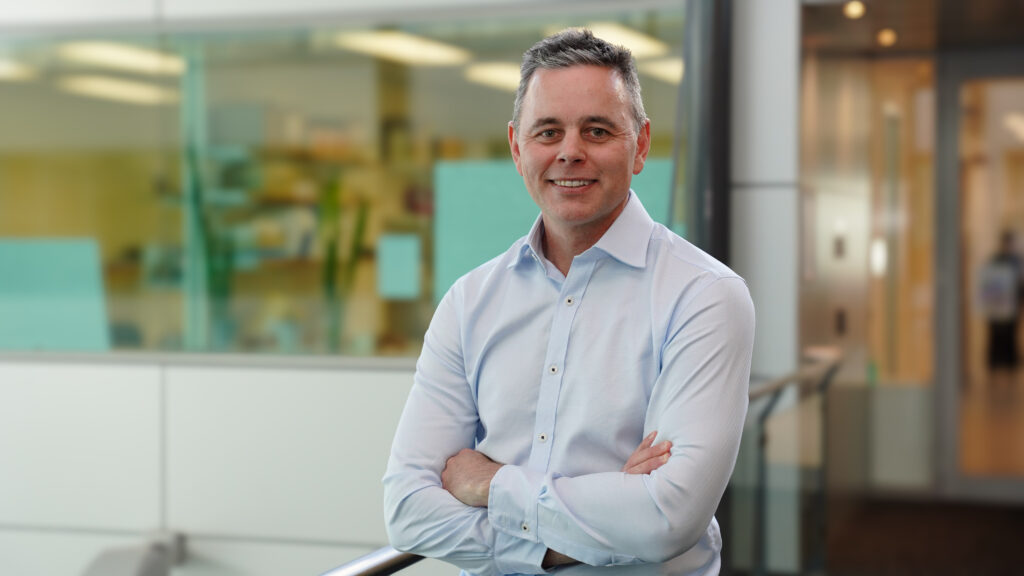The Trump administration and US Health Secretary RFK Jr have made several unscientific announcements about autism recently. After RFK Jr announced in April he would ‘find’ the cause of Autism by September, he then linked autism to the use of acetaminophen (Tylenol) by pregnant people, to vaccines, and even the cultural practice of circumcision. Why is autism receiving so much negative attention?
InSight+ spoke with leading Australian autism experts about why Trump and RFK Jr are using autism as a political wedge issue.
Nicole Rogerson is the CEO of Autism Awareness Australia and has an idea about why autism is so useful to the Trump administration.
“I’ve had people saying to me, ‘Nicole, you must love Trump. He seems to be on top of that autism thing, isn’t he?’ And if you weren’t paying attention, maybe that’s what you’d think. And that’s the struggle that society has at the moment,” said Ms Rogerson.
“What’s going on in the States at the moment is highly unusual. I don’t think it tells us much about international thinking or where autism is at this particular time in history. It’s set up by two things.”
“First, we have a highly unusual US President who can be influenced by people and positions. The second is that he is being influenced by RFK Jr.”
“In autism research, RFK Jr has been a sideline character with fringe views on autism as an anti-vaxxer.”
“Tylenol is almost a distraction. He’s asking people to question science by just saying, ‘Well, I’m not saying Tylenol’s the cause, but it doesn’t matter how many experts around the world say that is bunkum.’”
Ms Rogerson said there will be a percentage of pregnant women who are not taking paracetamol because of the message.
“We’re in a really dangerous area. Autism has got a really ugly history in some areas and there might be some people in modern America who fall prey to this kind of messaging. But I think it’s way too early to say that at the moment.”
Former reality TV star, Dr Oz, helped announce that leucovorin, a drug used for cerebral folate deficiency, would be approved to treat an autism ‘epidemic.’
The Coalition of Autism Scientists said that ‘the data cited do not support the claim that Tylenol causes autism, and leucovorin is a cure.’
Profound autism: one end of the spectrum
Ms Rogerson said that in order to stop autism being politicised, we must meet the needs of all people with autism.
She said misinformation and disinformation becomes easier when the public is not informed about autism.
“There is a cohort in the autism community of people whose children have severe and profound autism, who have been ignored by the neurodiversity movement. They need 24/7 care, and autism is hard to celebrate because it impacts their family so much,” she said.
“RFK is only focusing on that cohort. That’s the irony. He’s able to talk about autism as a disease, and to use the medical model and all of that unfriendly language. It’s an autism culture war he’s trying to start, and it’s really unfair.”
“But by us just saying that autism is this one thing, it’s left all that murkiness around the messaging that people like RFK Jr love jumping into.”
“People with profound autism are desperate for help. But RFK doesn’t have the answer. He is just making all this noise.”
“And Trump … is allowing RFK Jr to take this agenda, in this really anti-science world.”
“You can see the amount of people at the CDC whom he has fired. He doesn’t want scientists there. He doesn’t want modern thinking about autism. He wants to frame it as a catastrophe, because that supports his anti-vax stance.”
Ms Rogerson said that the solution is to acknowledge and care for the entire spectrum.
“In the movement to celebrate all that’s good about autism, we forgot that it’s okay for us to talk about the hard bits.”
“We want everyone to have the best quality lives, according to what they want and need. We want to bring the community together.”
Ms Rogerson said that most of the hope for autism research is coming, and will have to come, from outside of the US.
Studies from Denmark in July, and Sweden in April, found no association between vaccines and autism, or acetaminophen use during pregnancy and autism, respectively.
“I think everyone will work around the United States for a few years. Everyone will get on with the business of doing what they were doing.”
Nicole Rogerson and Autistic Awareness Australia are hosting the first symposium families of people with profound Autism next month.
Autism as a political lightning rod
Professor David Trembath is the Head of Autism Research at CliniKids at The Kids Research Institute Australia.
“Why is it happening? I think because autism is an easy target, and it allows people to amplify their own messages, their own agendas,” said Prof. Trembath.

“It feels like autism is acting as a lightning rod for a whole lot of grievances and agendas that people are looking to push. There’s an unhelpful, unhealthy, and problematic undertone to all of it,” he said.
“It’s seeing autism as a problem, a disease, or an accident, something that can or needs to be fixed. And the approach has been to attack autistic people, and their family members, in order to push those agendas,” he said.
“So, for example, broader movements to reduce women’s rights, to undermine autonomy over their own bodies, and misogyny are all relevant to what’s happening.”
“At an individual level, it is a blatant and hurtful accusation that parents are not acting in the best interests of their babies. It says that following the advice of their doctors is wrong.”
Acetaminophen is one of a few pain relief medications deemed safe during pregnancy.
“The doctors are telling us loud and clear that denying people who are pregnant access to medications like acetaminophen can put them, and their babies, at risk,” said Prof. Trembath.
“We have to listen to health professionals who are backed by science and who have parents’ and children’s best interests at heart.”
Prof. Trembath said that as information about autism grows, so does misinformation.
“So many people these days have a connection to autism. They themselves, or a family member, may be Autistic, or have seen it in the media. Add social media and it’s a recipe for the spread of misinformation.”
“One of the big challenges is people drawing their own conclusions. People are influenced by their own biases and worldview, and paying less attention to the actual facts, the evidence.”
“If you want to push a big agenda, or send out a big, divisive message — say diversity, equity, inclusive employment, anti-vaxxing, or concerns about spending and funding and support — a classic way to do that is pick an issue that a lot of people are invested in. It amplifies engagement and impact.”
How can GPs best support Autistic Australians?
Prof. Trembath reflected on Health Minister Mark Butler’s policies regarding Thriving Kids, and what is the best way forward for support for autism.
“I look at the existing systems and think, how could we enhance them?” said Prof. Trembath.
“GPs play an important role in helping parents work out how best to support their child’s development, to work out the logical next step.”
“They engage in personalised support planning in every interaction, even if we don’t call it that. Allied health professionals do a similar thing.”
“Imagine the positive impact it could have if their important role could be bolstered, supported, expanded?”
Becca Whitehead is a freelance journalist and health writer. She lives in Naarm and is a regular contributor to the MJA’s InSight+.
Subscribe to the free InSight+ weekly newsletter here. It is available to all readers, not just registered medical practitioners.

 more_vert
more_vert